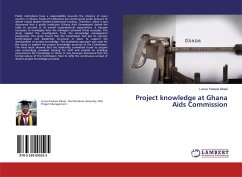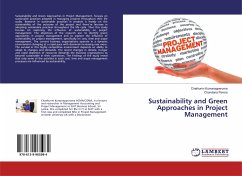Public institutions have a responsibility towards the citizenry of every country. In Ghana, heads of institutions are continuously under pressure to deliver results despite limited institutional funding. Therefore, when it was discovered that a public institution (Ghana Aids Commission) defied the odds to succeed in its overall organisational expectations, it became necessary to investigate how the managers achieved those successes. The study angled the investigation from the knowledge management perspective. The study found that the Commission had put its cultural, technological and leadership structures in place to support the development of project knowledge. The qualitative approach was used for the study to explore the project knowledge practices of the Commission. The final result showed that the leadership committed funds to acquire new technology, provided training for staff and created an enabling environment for knowledge to thrive. It was however discovered that the formal nature of the Commission tried to stifle the continuous survival of vibrant project knowledge practices.
Bitte wählen Sie Ihr Anliegen aus.
Rechnungen
Retourenschein anfordern
Bestellstatus
Storno








